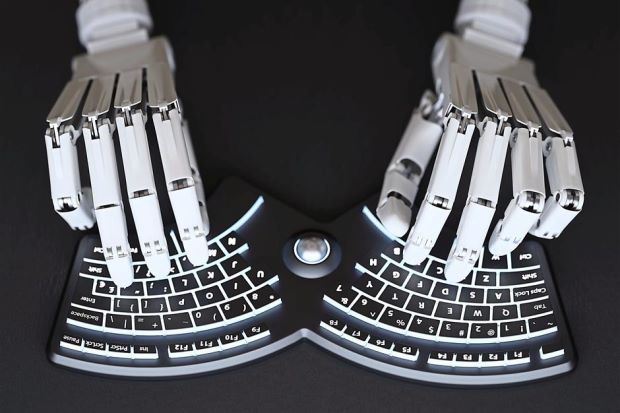“The factory of the future will only have two employees – a man and a dog. The man will be there to feed the dog; the dog will be there to keep the man from touching the equipment.”
copyright by www.thestar.com.my
 That was American scholar and business leadership expert Warren Bennis’ reply when asked what artificial intelligence (AI) would do to the world of work. Bennis’ assessment, published in The Millionaire’s Book Of Quotations, seems a little dystopian, but it isn’t far from the truth if the recent analysis by Price Waterhouse Cooper (PWC) is an indication of the future.
That was American scholar and business leadership expert Warren Bennis’ reply when asked what artificial intelligence (AI) would do to the world of work. Bennis’ assessment, published in The Millionaire’s Book Of Quotations, seems a little dystopian, but it isn’t far from the truth if the recent analysis by Price Waterhouse Cooper (PWC) is an indication of the future.
Automation has come to stay
PWC claims that up to 38% of jobs in the United States, 35% in Germany, 30% in Britain and 21% in Japan could be automated by 2030, and that is a scary thought. The report said that manual roles highly susceptible to replacement by AI are transportation and storage (56%), manufacturing (46%) and wholesale and retail (44%) sectors. Earlier this year, private sector think tank McKinsey Global Institute released a more reassuring report – for those hoping to keep their jobs, at least – that suggests half of today’s work activities can only be automated by 2055, and that only 5% of jobs can be completely automated, if ever. The threshold, however, could be reached 20 years earlier or later depending on economic trends, labour market dynamics, regulations and social acceptance. Now, whether the AI’s complete takeover in workplaces happens earlier or later, let’s get one thing straight – AI is already here and is looking to stay.
Intelligent assistants
AI is being used as intelligent assistants in the workplace, with more companies using the technology to transform parts of their operations. One such department that benefits from AI is Human Resources, namely in the operation, productivity and talent development sections. “AI in the workforce is much different than that textbook image or that of The Jetsons. From voluminous files to virtual files – employees navigate the virtual hallways seamlessly between e-mail, texting, Skype and live chats. The advent of technology has taken the world by storm and the traditional workplace evolved to keep up with both the technology and workforce that came through digital transformation,” says Microsoft Malaysia chief marketing & operations officer Michal Golebiewski.
read more – copyright by www.thestar.com.my


“The factory of the future will only have two employees – a man and a dog. The man will be there to feed the dog; the dog will be there to keep the man from touching the equipment.”
copyright by www.thestar.com.my
Automation has come to stay
PWC claims that up to 38% of jobs in the United States, 35% in Germany, 30% in Britain and 21% in Japan could be automated by 2030, and that is a scary thought. The report said that manual roles highly susceptible to replacement by AI are transportation and storage (56%), manufacturing (46%) and wholesale and retail (44%) sectors. Earlier this year, private sector think tank McKinsey Global Institute released a more reassuring report – for those hoping to keep their jobs, at least – that suggests half of today’s work activities can only be automated by 2055, and that only 5% of jobs can be completely automated, if ever. The threshold, however, could be reached 20 years earlier or later depending on economic trends, labour market dynamics, regulations and social acceptance. Now, whether the AI’s complete takeover in workplaces happens earlier or later, let’s get one thing straight – AI is already here and is looking to stay.
Intelligent assistants
AI is being used as intelligent assistants in the workplace, with more companies using the technology to transform parts of their operations. One such department that benefits from AI is Human Resources, namely in the operation, productivity and talent development sections. “AI in the workforce is much different than that textbook image or that of The Jetsons. From voluminous files to virtual files – employees navigate the virtual hallways seamlessly between e-mail, texting, Skype and live chats. The advent of technology has taken the world by storm and the traditional workplace evolved to keep up with both the technology and workforce that came through digital transformation,” says Microsoft Malaysia chief marketing & operations officer Michal Golebiewski.
read more – copyright by www.thestar.com.my
Share this: